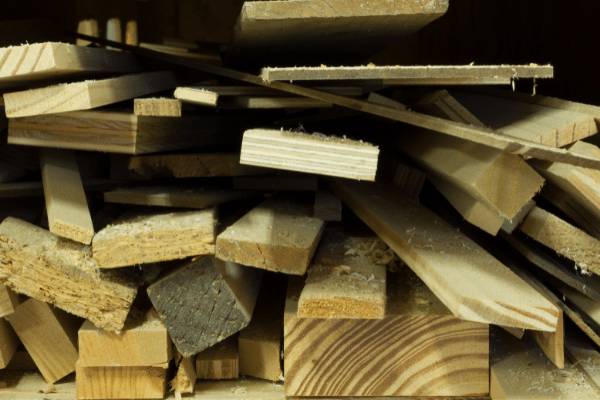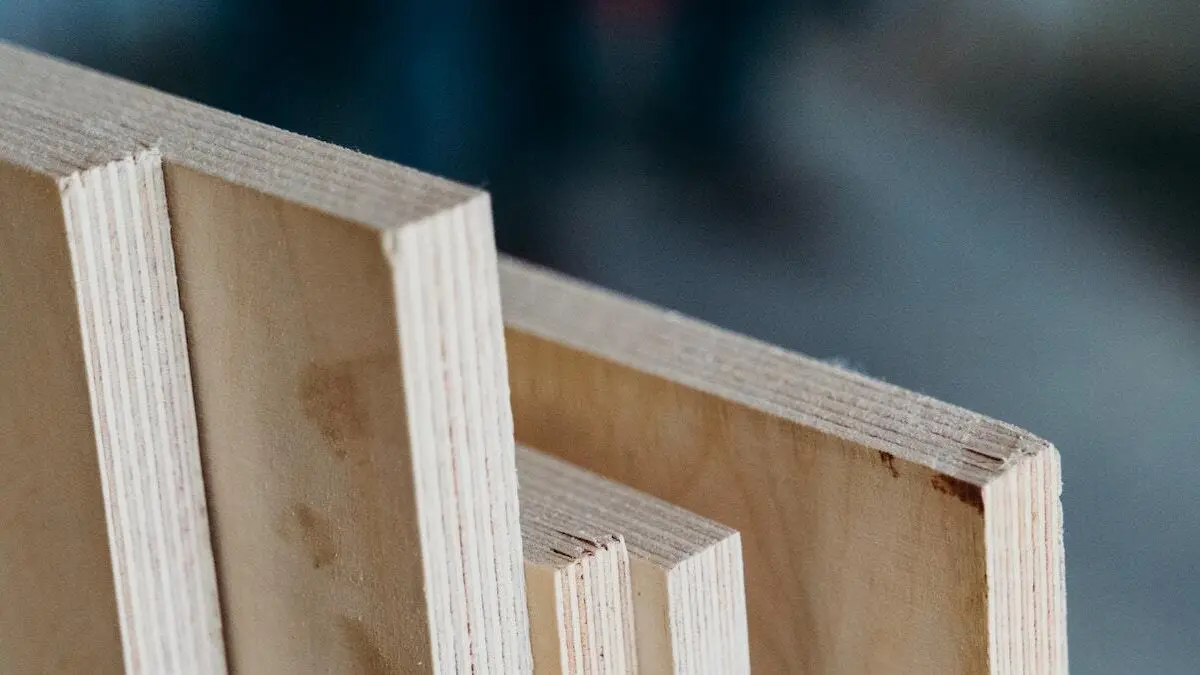Have you ever wondered if you can legally burn plywood? Well, let’s find out! Burning plywood may seem like a simple act, but there are important things to consider. So, is it illegal to burn plywood? Let’s dive in and explore the answer together!
Now, you might be wondering why it matters if burning plywood is legal or not. Well, my curious friend, understanding the legality behind burning plywood helps us make informed decisions and ensures we prioritize safety and environmental responsibility. So, let’s uncover the truth about burning this particular material.
Burning plywood involves more than just flicking a match and setting it ablaze. There are laws and regulations in place that govern the burning of various substances, including plywood. Get ready to learn about the potential risks, environmental impact, and legal consequences surrounding this fiery topic. Let’s get started!

Is It Illegal to Burn Plywood? Exploring the Legalities and Environmental Impact
Burning plywood may seem like a convenient way to dispose of unwanted wood scraps, but is it actually legal? In this article, we dive into the legalities surrounding burning plywood and the potential environmental impact it can have. While it may seem like a straightforward question, the answer is not as simple as a yes or no. Let’s explore the various factors that come into play when determining the legality of burning plywood.
Understanding Local Regulations: Know the Laws in Your Area
When it comes to burning materials, including plywood, it’s important to understand that regulations can vary between different jurisdictions. The laws regarding burning plywood can be influenced by factors such as local air quality regulations, zoning laws, and state or country environmental regulations. It’s crucial to research and familiarize yourself with the specific regulations governing open burning in your area.
One common factor in many jurisdictions is that burning any type of wood that has been treated with preservatives or has paint or other coatings is typically prohibited. This includes plywood that has been treated with chemicals or has a decorative finish. The reason behind this restriction is that burning treated or coated wood releases potentially harmful toxins into the air, posing a risk to both human health and the environment.
Additionally, even if the plywood is untreated and considered safe to burn, there may still be restrictions on open burning, particularly in urban areas. These restrictions are typically in place to protect air quality and prevent the release of pollutants. It’s important to check with local authorities or consult your municipality’s regulations to ensure compliance and avoid any potential legal issues.
The Environmental Impact of Burning Plywood: Air Quality and Pollution Concerns
Beyond the legal implications, burning plywood can have significant environmental consequences. When plywood is burned, it releases a variety of pollutants into the air, contributing to air pollution. The combustion of wood products, including plywood, produces carbon monoxide, nitrogen oxides, volatile organic compounds (VOCs), and fine particulate matter (PM2.5). These pollutants can harm human health and contribute to respiratory issues, especially in vulnerable populations such as children, the elderly, and individuals with pre-existing respiratory conditions.
In addition to human health concerns, the combustion of plywood also contributes to climate change. Burning wood releases carbon dioxide (CO2) into the atmosphere, a greenhouse gas that traps heat and contributes to global warming. While wood is considered a renewable resource, its combustion releases the carbon stored in the wood back into the atmosphere, contributing to the carbon cycle and increasing overall CO2 levels.
Considering the negative impacts on air quality and climate change, it is generally recommended to avoid burning plywood and instead explore more environmentally friendly disposal options, such as recycling or composting.
Tips for Proper Disposal of Plywood: Explore Environmentally Friendly Options
Now that we understand the legal and environmental implications of burning plywood, let’s explore some alternative disposal options:
1. Recycling:
Many communities have recycling programs that accept wood waste, including plywood. Recycling wood waste helps reduce landfill usage and allows the materials to be repurposed. Contact your local recycling center or waste management facility to inquire about wood recycling options in your area.
2. Composting:
If the plywood is untreated and does not contain any coatings or preservatives, it may be suitable for composting. Breaking the plywood into smaller pieces or shredding it can speed up the composting process. However, it’s important to ensure that the composting facility or system can handle wood materials.
3. Reuse or Upcycling:
Consider finding creative ways to repurpose plywood instead of disposing of it. Plywood can be used for various DIY projects, such as building shelves, furniture, or even artwork.
4. Consult with Professionals:
If you have a large amount of plywood waste or are unsure about the best disposal method, it’s advisable to consult with waste management professionals or recycling experts. They can provide guidance and ensure that the plywood is disposed of properly and in compliance with local regulations.
By exploring these alternative disposal methods, you can ensure that you are making environmentally responsible choices while also adhering to local regulations regarding the disposal of plywood.
Key Takeaways: Is It Illegal to Burn Plywood?
- Due to potential harm from toxic chemicals released during burning, it is generally not advisable to burn plywood.
- In some areas, burning plywood may be prohibited by local fire or environmental regulations.
- Plywood often contains adhesives or coatings that can release harmful substances when burned, posing health risks.
- It is important to follow local laws and regulations regarding burning materials to protect yourself and the environment.
- If you need to dispose of plywood, consider recycling or finding alternative methods instead of burning.
Frequently Asked Questions
Welcome to our FAQ section where we answer some common questions about burning plywood!
1. Can I burn plywood in my backyard fire pit?
It’s important to note that burning plywood in a backyard fire pit may be illegal in some areas. The reason behind this is that plywood contains glue and other chemicals that can release harmful toxins when burned. These toxins can pollute the air and pose a risk to human health. To ensure you comply with local regulations, it’s best to check with your local authorities or fire department before burning plywood.
If burning plywood is allowed in your area, it’s still a good idea to exercise caution. Make sure the wood is properly dried and don’t burn large quantities at once to minimize the release of toxins. Always prioritize safety and be mindful of the impact on the environment and your neighbors.
2. What are the potential health risks of burning plywood?
Burning plywood can release toxic fumes, which can have detrimental effects on human health. These fumes often contain chemicals like formaldehyde and volatile organic compounds (VOCs) that can irritate the respiratory system and worsen existing conditions such as asthma or allergies.
Exposure to these toxins can lead to symptoms like coughing, wheezing, difficulty breathing, headaches, and eye or throat irritation. Prolonged or repeated exposure to these fumes can even be more serious and may increase the risk of developing certain respiratory and cardiovascular diseases. It’s crucial to prioritize your health and avoid burning plywood if there are safer alternatives available.
3. Are there any safe alternatives for disposing of plywood?
Yes, there are several safe alternatives for disposing of plywood. One option is to recycle it. Depending on your location, there may be recycling centers or programs that accept plywood. You can also reach out to local construction companies or waste management facilities to inquire about proper disposal methods.
If the plywood is still in good condition, you might consider repurposing it for other projects or donating it to organizations that can make use of it. Another alternative is to contact a professional waste removal service that can handle the proper disposal of the plywood.
4. Can burning plywood in an indoor fireplace be dangerous?
Burning plywood in an indoor fireplace is not recommended. Indoor fireplaces are not designed to handle the release of toxins that burning plywood can produce. The confined space can lead to a buildup of these chemicals, increasing the risk of respiratory issues, allergic reactions, and even carbon monoxide poisoning.
If you’re using a wood-burning fireplace, it’s important to only burn properly seasoned firewood that is free from any coatings, treatments, or chemicals. This ensures a safer and healthier indoor environment for you and your family.
5. Is there any specific type of wood that is safe to burn?
When it comes to burning wood, it’s generally recommended to use hardwoods like oak, maple, or birch. These types of wood provide a cleaner burn and produce less smoke and toxins compared to softwoods like pine or fir.
However, it’s important to use properly seasoned wood that has been dried for at least 6 months. Wet or green wood can create excessive smoke and pollutants. Additionally, it’s best to avoid burning wood that has been treated, painted, or coated with chemicals as these can release harmful substances when burned.

How to: Burnt Plywood Cladding
Summary
Burning plywood can be illegal because it releases harmful chemicals into the air, like formaldehyde. This can harm our health and the environment. It’s important to dispose of plywood properly, such as through recycling or contacting local waste management authorities.
Burning plywood can also contribute to air pollution, which is bad for everyone. It’s essential to be aware of the laws and regulations in your area regarding burning plywood, and consider alternative methods for disposal to protect ourselves and our planet.
